Hardliner, moderate to face off in 2nd-ever Iranian runoff, after record low turnout
Neither presidential candidate secures majority, with 40% voter turnout amid opposition boycott; reformist Pezeshkian wants ‘friendly relations with all countries except Israel’
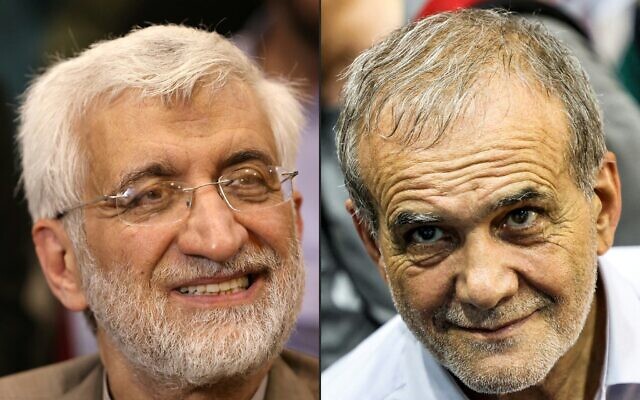
Pezeshkian received over 10,400,000 votes and Jalili, a former nuclear negotiator, has more than 9,400,000, said Mohsen Eslami, spokesman of Iran’s election authority.
“None of the candidates could garner the absolute majority of the votes; therefore, the first and second contenders who got the most votes will be referred” for the second round, scheduled for next Friday, Eslami told a press conference.
Out of around 61 million eligible voters, some 24,500,000 voters headed to the polls, he added, with a turnout of around 40 percent — the lowest yet in the history of the Islamic Republic.
Out of Iran’s 13 previous presidential elections since the Islamic revolution in 1979, only one, in 2005, has led to a runoff.
Conservative parliament speaker Mohammad Bagher Ghalibaf received about 3,383,340 votes and Mostafa Pourmohammadi, a conservative cleric, had 206,397 votes. The election authority counted a total of 1,056,159 spoiled ballots.
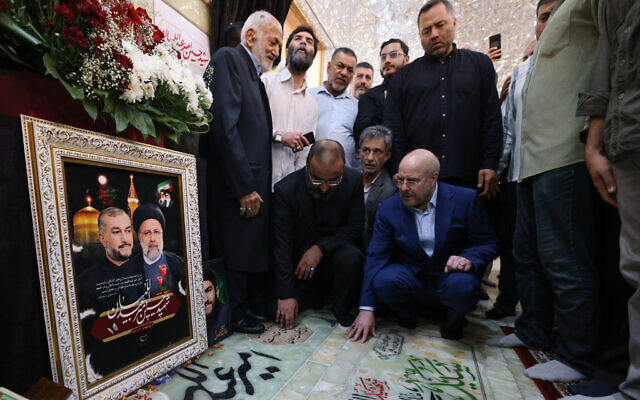
The elections were originally scheduled for 2025 but were brought forward by the death of ultraconservative president Ebrahim Raisi in a helicopter crash last month.
The Guardian Council, which vets electoral candidates in the Islamic Republic, had originally approved six contenders.
But a day ahead of the election, two candidates — the ultraconservative mayor of Tehran, Alireza Zakani, and Raisi’s vice president, Amir-Hossein Ghazizadeh-Hashemi — dropped out of the race.
In the 2021 elections that brought Raisi to power, the Council disqualified many reformists and moderates, prompting voters to shun the polls en masse.
The turnout then was just under 49%, which at the time was the lowest of any presidential election since the Islamic Republic was founded in 1979.
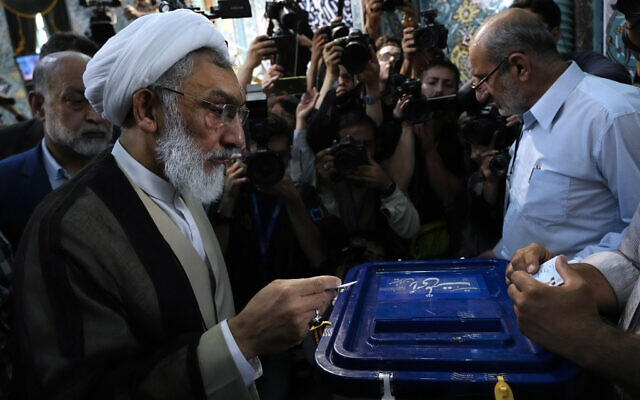
Different camps
Friday’s vote took place amid heightened regional tensions over the Gaza war, a dispute with the West over Iran’s nuclear program and domestic discontent over the state of the country’s sanctions-hit economy.
Iran’s supreme leader Ayatollah Ali Khamenei had called on people to participate in the vote. But opposition groups, especially in the Iranian diaspora, called for a boycott of the vote, questioning the elections’ credibility.
Pezeshkian, 69, is a heart surgeon who has represented the northern city of Tabriz in parliament since 2008.
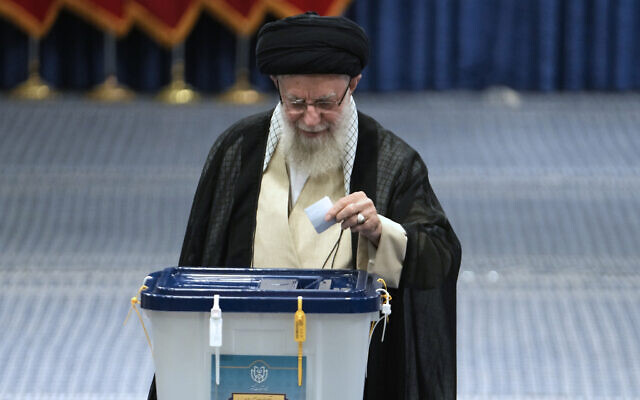
He served as health minister under reformist president Mohammad Khatami, who held office from 1997 to 2005 and has endorsed Pezeshkian’s bid in the current elections.
Pezeshkian criticized Raisi’s government for a lack of transparency during nationwide protests triggered by the September 2022 death in police custody of Mahsa Amini.
Amini, a 22-year-old Iranian Kurd, had been arrested for allegedly violating the Islamic Republic’s strict dress code for women.
In recent campaigning, Pezeshkian called for “constructive relations” with Washington and European countries in order to “get Iran out of its isolation.”
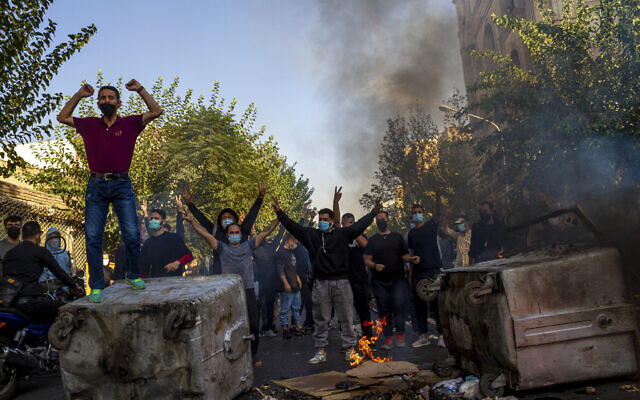
However, Pezeshkian has been less welcoming of ties with Israel.
“God willing, we will try to have friendly relations with all countries except Israel,” the reformist candidate told reporters in Tehran after casting his ballot at a local hospital.
Ultraconservative Jalili, Iran’s former nuclear negotiator, has maintained his uncompromising anti-West stance.
The 58-year-old has held several senior positions in the Islamic Republic, including in Khamenei’s office in the early 2000s. He is currently one of Khamenei’s representatives in the Supreme National Security Council, Iran’s highest security body.
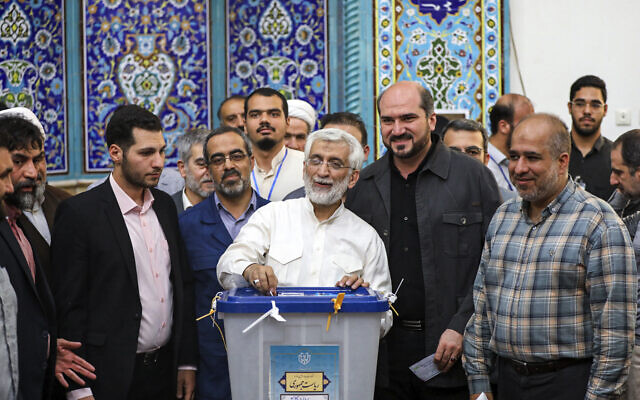
On Saturday, Iranian reformist daily Sazandegi posted “Long live hope” on its front page, while the state-run daily Iran hailed the “strong” turnout.
Regardless of the result, Iran’s next president will be in charge of applying state policy outlined by the supreme leader, who wields ultimate authority in the country.
Earlier, the local Tasnim news agency said militants in southeast Iran attacked a vehicle carrying ballot boxes in Sistan-Baluchistan province.
Two policemen were killed and others were injured in the attack, the agency added.
No comments:
Post a Comment